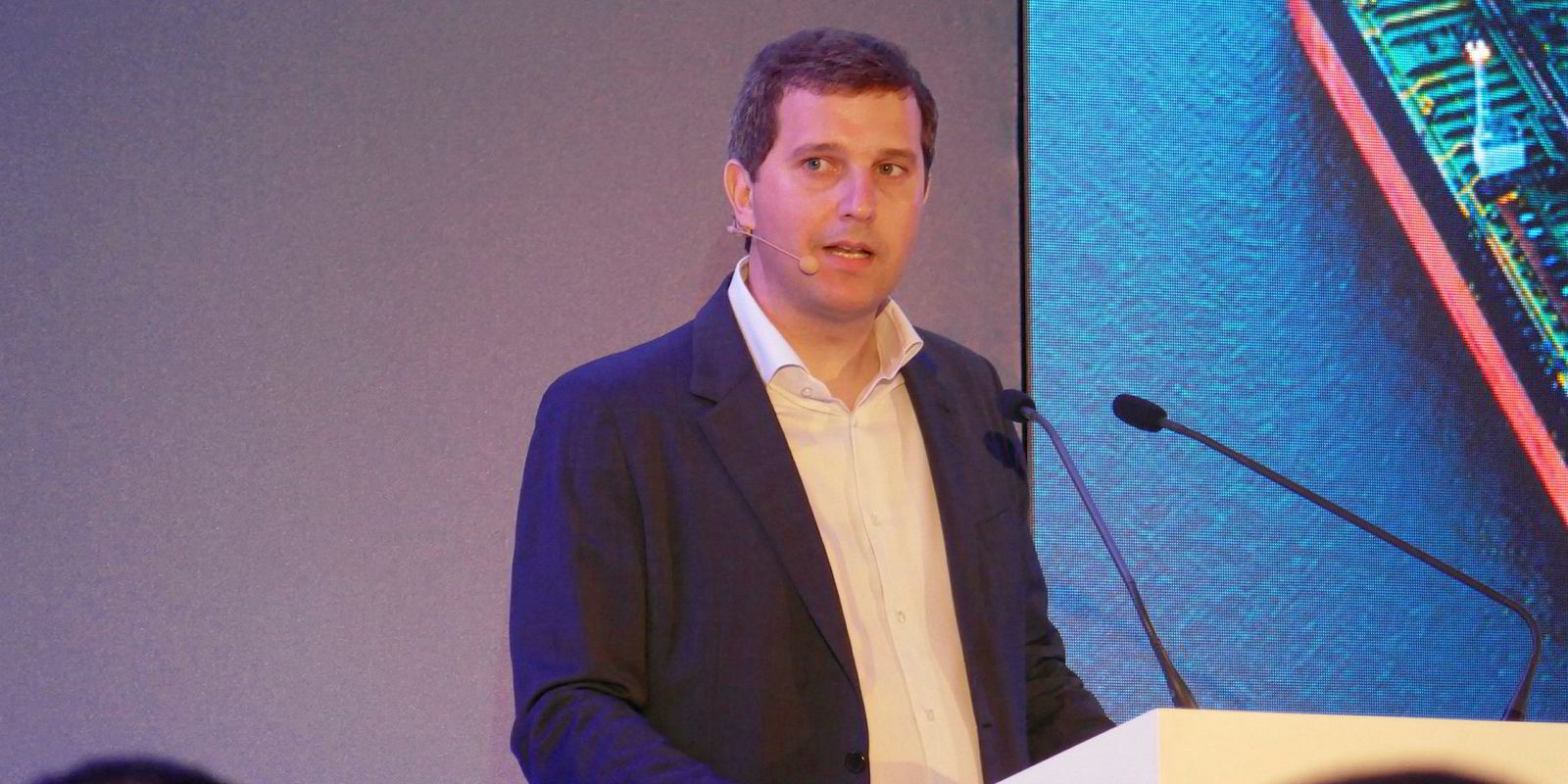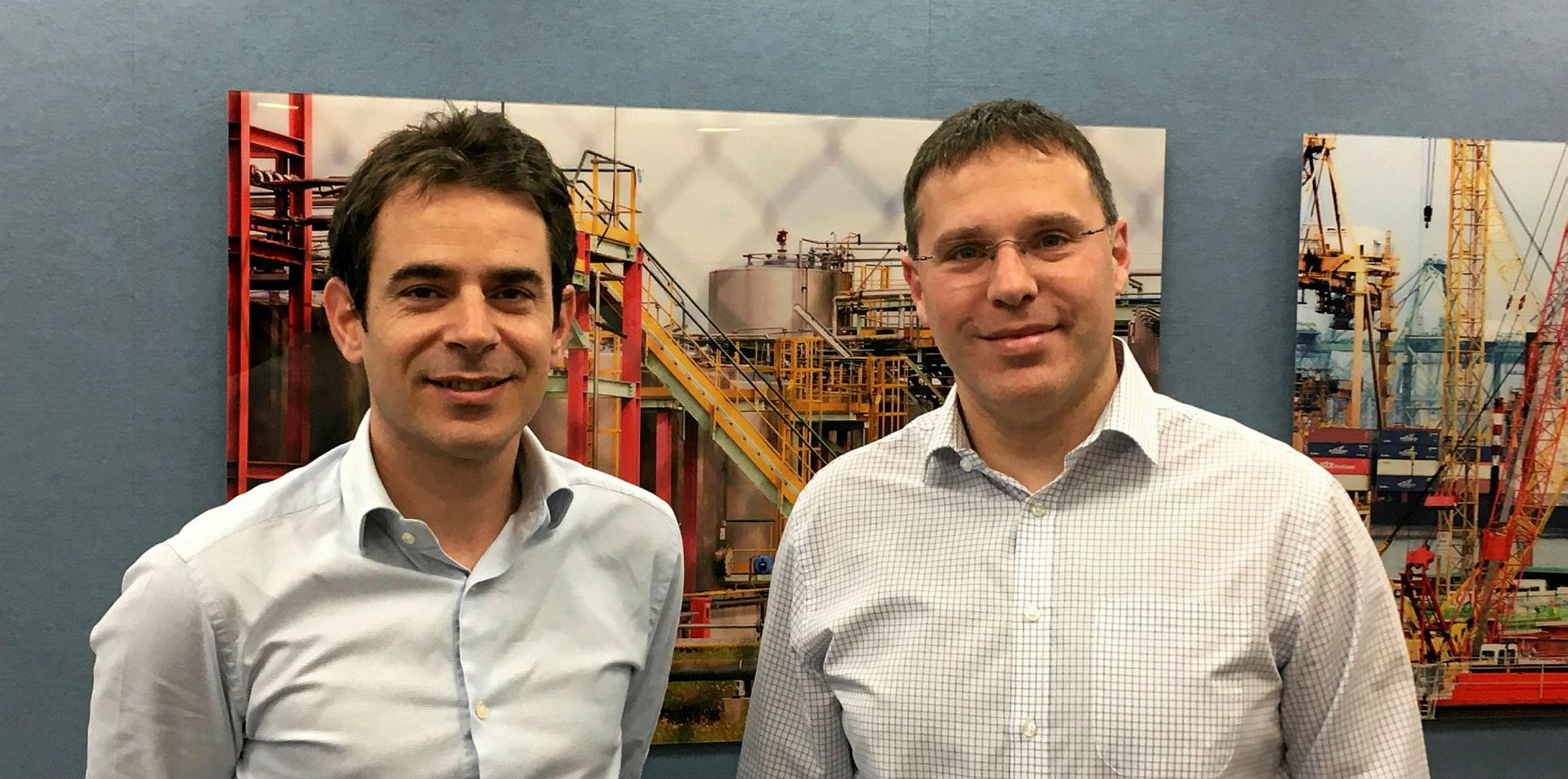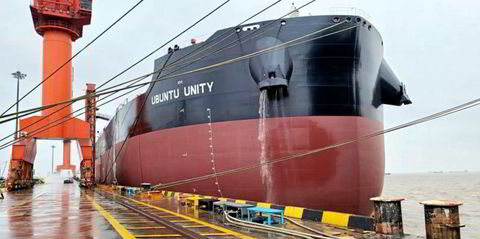Tanker pool operator Signal Maritime is taking the next step in its development, setting up a new venture for MR product carriers alongside its established aframax undertaking.
The Greek company will start marketing the pool in June, Signal chief executive Panos Dimitracopoulos told TradeWinds.
The MR structure is already up and running with three ships, including two from Astra Shipmanagement, a Greek operator set up by members of the wider Martinos family.
Informal discussions with potential clients to expand the MR pool further are already underway, said Dimitracopoulos.
MRs were an obvious target for Signal to tackle. Signal Group founder Ioannis Martinos as well as senior managers, including Dimitracopoulos, were formerly with Greece's Thenamaris, which owns a sizeable fleet of MR tankers.
“Given the support we have from our data and technology and our expertise in this specific segment, it was a natural step to expand with MRs,” Dimitracopoulos said.
Signal also considers the MR market to be currently under-exploited by pools.
“The potential for consolidation at commercial level is high. We think it’s a market that has a lot of room for improvement in the pool business," he said.
Wider market conditions may also be propitious. Dimitracopoulos, who was Thenamaris’ head of chartering before joining Signal, expects product tanker markets to “see some good signs of improvement” from the fourth quarter onwards.
“Spot exposure is going to get interesting because we believe that clean markets will be the first ones to rebound from current depressed levels,” he said.
The revenue sharing system in Signal’s MR pool will be somewhat different from the one the company uses for its aframaxes.
“On the aframax side, we practically have a dynamic pool-points system that applies on a per voyage basis. In our MR pool, the mechanism resembles more to that used in a standard pool, but it is more data-informed,” said Dimitracopoulos.
The system will in any way undergo regular reviews for possible improvements.
Other features are common, mainly the use of real data and analysis from the company’s proprietary Signal Ocean data platform, optimised fleet scheduling to minimise carbon emissions and flexibility for clients to enter and exit the pool easily.
That flexibility may have proved somewhat of a disadvantage in depressed tanker markets, during which Signal’s aframax pool shrunk to 17 ships from about 25 last year.
“About 80% of the departures we had in our pool over the last six months was due to a combination of ships that were sold and others that had time charters or bareboat contracts that expired and whose head owners had a different commercial strategy, outside pools, in mind,” said Dimitracopoulos.
Other departures were due to owners switching their ships to clean trade from dirty in the market downturn he added.
A cooperation with pool operator Heidmar announced in early 2020 has had no follow-up beyond the aframax sector.
Heidmar now operates its own pool independently without any involvement from Signal.
Signal will spend time on its tanker effort before considering other expansion moves.
“We won’t rush,” Dimitracopoulos said. “We wouldn’t want to spread ourselves too thin by looking at other segments at this point in time.”






